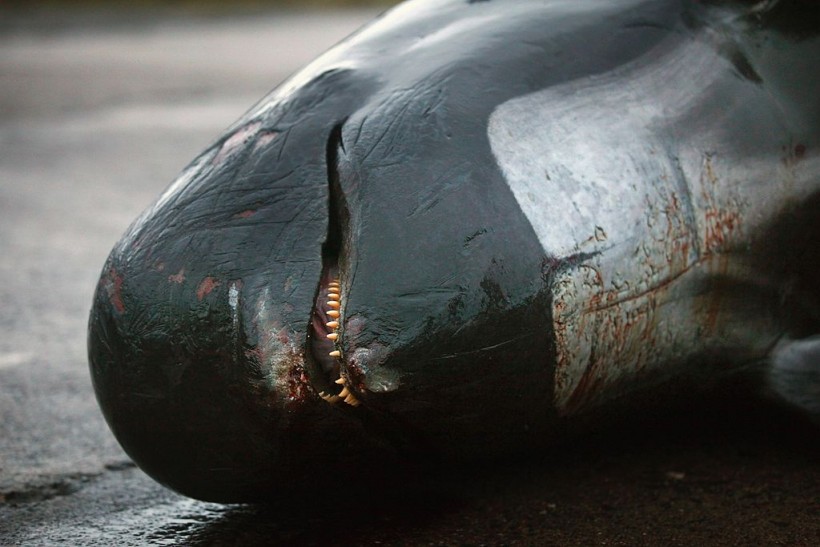Whale stranding is a phenomenon wherein any species of whales, aquatic mammals under the order Cetacea, washes up dead along a shore of a beach or any immediate coastal area. This event can happen to other marine animals, including dolphins and sharks, and occur in different parts of the world. Across the Atlantic Ocean, mass whale deaths were observed from the United Kingdom to the United States.
Recently, 77 pilot whales (Globicephala) mysteriously washed up dead along Orkney Beach in Scotland. However, local authorities found that the mass whale strandings were likely caused by orcas or killer whales (Orcinus orca). Based on initial investigations, the pilot whales were healthy and were feeding in the waters off Scotland before they got stranded, as cited by local reports.
77 Pilot Whales Stranded

(Photo : Photo by Jeff J Mitchell/Getty Images)
Based on findings from post-mortem examinations conducted by experts, the 77 pilot whales stranded along Orkney Beach potentially died from killer whales which were spotted off the coast in Scapa Flow. Out of the fatalities, 12 whales initially survived the strandings but were euthanized following failed rescue attempts, according to reports.
The recent incident in the Scottish waters was deemed by authorities to be caused by natural factors such as predation by orcas. This likely forced the pilot whales to flee out of fear and became stranded along the shore.
A probe into the incident is still ongoing to prevent or mitigate the deaths of whales in the future; this is especially necessary if the deaths were caused by people or their activities indirectly. Yet, related deaths of marine animals in the past were linked to anthropogenic factors such as vessel strikes or ship collisions, plastic pollution, or even offshore wind turbines.
But there is no scientific explanation yet if these factors have been the main cause of mass whale deaths reported globally.
Also Read: Mass Whale Stranding Due to Strong Social Bond Leads To Death Of Over 50 Whales
Mass Whale Deaths in Scotland
Scotland is not a stranger to mass whale deaths since scientists have recorded multiple whale strandings along the Scottish coast since the early 20th century. However, various studies and reports throughout the decades have shown that the increase in human activities, intensification of climate change, and ocean warming exacerbated life-threatening risks for marine life.
In 2011, marine experts conducted an operation to save up to 70 pilot whales from dying in Scottish waters after a pilot whale from their pod was found dead along Loch Carnan.
In 2023, authorities also discovered more than 50 dead pilot whales off a remote island in Scotland. These phenomena of mass whale deaths have occurred on separate occasions and affected different pods of whales off Scotland.
Experts who conducted a probe into the incident suspected that the mass deaths were caused by the whales' strong social bond. This social behavior forces the rest of the pod to also follow their kin in distress, even when stranded on the shore.
Related Article: Humpback Whale Washes Up Dead Along South New Jersey Beach, Adding to State's Previous Whale Stranding Cases
© 2024 NatureWorldNews.com All rights reserved. Do not reproduce without permission.

